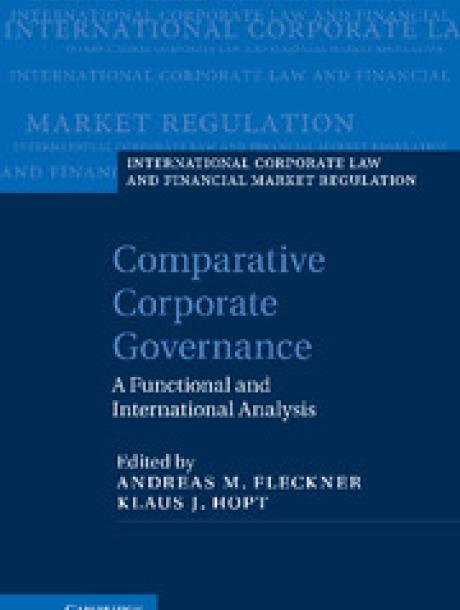
Comparative Corporate Governance
The business corporation is one of the greatest organizational inventions, but it creates risks both for shareholders and for third parties. To mitigate these risks, legislators, judges, and corporate lawyers have tried to learn from foreign experiences and adapt their regulatory regimes to them. In the last three decades, this approach has led to a stream of corporate and capital market law reforms unseen before. Corporate governance, the system by which companies are directed and controlled, is today a key topic for legislation, practice, and academia all over the world. Corporate scandals and financial crises have repeatedly highlighted the need to better understand the economic, social, political, and legal determinants of corporate governance in individual countries. Comparative Corporate Governance furthers this goal by bringing together current scholarship in law and economics with the expertise of local corporate governance specialists from twenty-three countries.
Contributors
Andreas M. Fleckner,
Klaus J. Hopt,
Jennifer G. Hill,
Junhai Liu,
Knut B. Pissler,
Wen-Yeu Wang,
Wang-Ruu Tseng,
Nobuo Nakamura,
Susanne Kalss,
Alexia Autenne,
Jan S. Christensen,
Jukka T. Mähönen,
Pierre-Henri Conac,
Lado Chanturia,
George Jugeli,
Hanno Merkt,
Péter J. Nikolicza,
Isabelle Corbisier,
Jaron van Bekkum,
Steven Hijink,
Michael Schouten,
Jaap Winter,
Beate Sjåfjell,
Cecilie Kjelland,
Stanislaw Soltysiński,
Jorge M. Coutinho de Abreu,
José A. García-Cruces González,
Ignacio Moralejo Menéndez,
Peter V. Kunz,
Marc T. Moore,
Raúl A. Etcheverry,
Rafael M. Manóvil,
Nelson Eizirik,
Ana C. Weber,
Arthur R. Pinto,
Franklin A. Gevurtz



